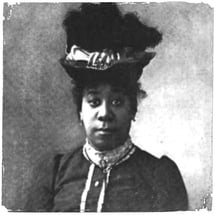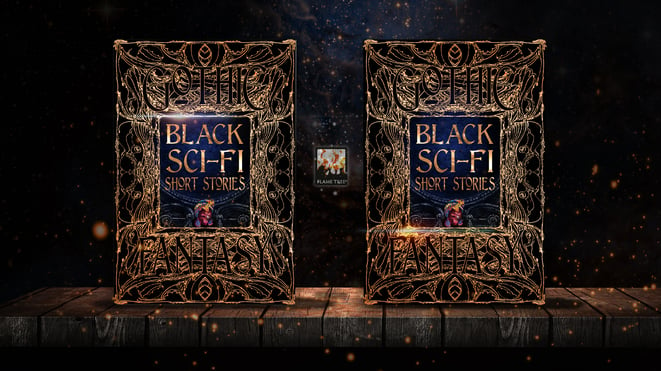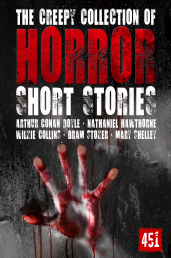For our next 'Founders of Black SF' post Patty Nicole Johnson will be discussing author and literary editor Pauline Hopkins. Discover what influences her novels may have had on the works of fantasy and sci-fi of today within the genre.
Founders of Black SF: Pauline Hopkins & Of One Blood; or, The Hidden Self
By Patty Nicole Johnson

Fantasy is a beloved sister to science fiction. Today, the popular literary magazine FIYAH dives into both the scientifically feasible and the fantastical in its quarterly releases. The organizers also ran a well-attended conference in 2020, FIYAHCON, which curated content for the wider BIPOC speculative fiction community.
Taking an exploratory view of the early days of Black science fiction, the works of Pauline Hopkins claim authority. She was a pioneering woman in speculative fiction and rose to prominence as the most prolific Black female author and esteemed literary editor of her time. Hopkins wrote numerous novels and shorter works. Yet her best-known book is called Contending Forces: A Romance Illustrative of Negro Life North and South.
The speculative element that is so intertwined within fantasy and science fiction is apparent in one of her later novels, Of One Blood; or, The Hidden Self, which was serialized in The Colored American Magazine from 1902 to 1903. The novel begins with a mixed-race man named Reuel Briggs opining about his medical student debt. His friend Aubrey, a white man, aims to lift his mood and invites him to attend a ‘negro’ music concert. It’s important to note that – at the beginning of the novel – while he knows he’s of mixed race, Reuel doesn’t feel passion toward this Black identity and allows himself to pass as white. At the performance, our main character becomes infatuated with a ‘negress’ singer, Dianthe. Many plot developments ensue and themes emerge, including revival through magnetism, loss of memory, travel to Ethiopia and discovery of a supernaturally hidden city of proud Black people and their queen, betrayal, revelation, murder, mysticism and magic, and exploitation.
The two titles of this novel, Of One Blood and The Hidden Self hint at the revelation that comes to the major characters late in the story. They’re all of the same blood, which may be why they're drawn to each other.
Now, as it was done decades before, writers are exploring their own speculative brews as they reimagine the pain and pleasure of citizens of the negritude. Black writers continue to concoct their own blend of social sciences and fantasy elements. In P. Djeli Clark’s Ring Shout, the 1915 film The Birth of a Nation is used by white supremacists to summon demons with pointy white heads. The Deep, by Rivers Solomon, plunges readers into a world of mermaids evolved from pregnant woman tossed overboard during the transatlantic slave trade. It’s also ingrained in other art forms as poets explore their ideas of grief, healing and lust, such as in the poem collection Soliloquy of an Ice Queen by Lysz Flo.
As apparent in Hopkin’s story, one may wonder if fantasy and science fiction can ever be truly separate. Because it may take another hundred years for the elements in Hopkins' story and those of other speculative writers to come into the light from the depths of hidden dimensions.
Patty Nicole Johnson is a Black and Puerto Rican science-fiction writer. In her Chicago bungalow, she weaponises time travel, holograms, multiverses and more to envision a more equitable society. Her work has been published or is forthcoming in New American Legends, On the Seawall, Midnight & Indigo, Constelación and
Black Sci-Fi Short Stories combines new stories with early speculative and proto-science fiction by Black writers of an older tradition. Alex Award-winning novelist Temi Oh provides the foreword, alongside an introduction by Sandra M. Grayson, author of Visions of the Third Millennium: Black Science Fiction Novelists Write the Future (2003). With invaluable promotion and editorial support from Tia Ross and the Black Writers Collective.
Dystopia, apocalypse, gene-splicing, cloning and colonization are explored within the collection by new authors and combined with proto-sci-fi and speculative writing of an older tradition (by W.E.B. Du Bois, Martin R. Delany, Sutton E. Griggs, Pauline Hopkins and Edward Johnson) whose first-hand experience of slavery and denial created their living dystopia. Many of the themes in Sci-fi reveal the world as it is to others, show us how to improve it, and give voice to the many different expressions of a future for humankind. You can find the full contents list here.
Don't forget to come back next week to hear all about our next quintessential black science fiction author on the list!





